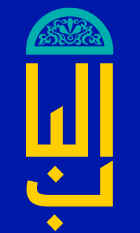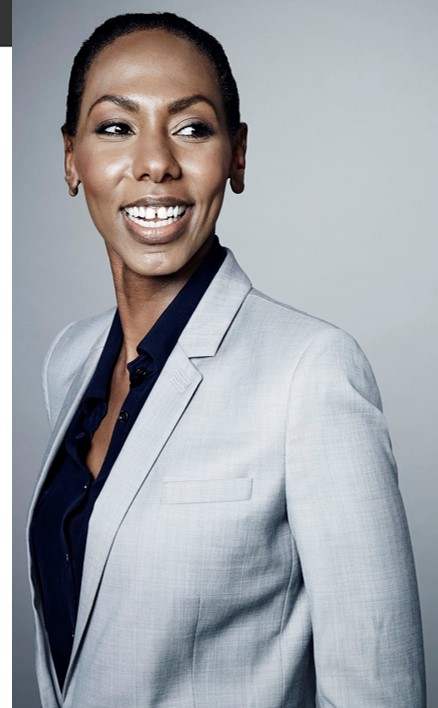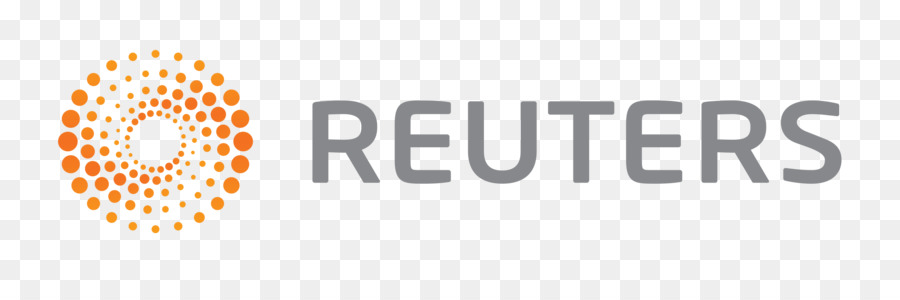The thing is though, sister:

Arabs and identity (3)
https://al-bab.com/articles-section/ara ... identity-3
The third in a series of interviews with young Arabs in the diaspora, talking about their sense of identity, their thoughts on life in the west and feelings towards their homeland.

Nima Elbagir was born in Sudan, came to Britain at the age of three, went back to Sudan at the age of eight, came to Britain again at 14 and returned to Sudan once more at 22. She is now living in Britain again.
Nima's travels, and those of her family, mirror her homeland's turbulent politics.
she said.My father was an opposition politician and journalist,
By 1985 the situation changed again and her father went back.He was in prison before I was born. Then he was released and we went into exile.
But it was only a few years before a coup came. Her father happened to be abroad at the time and decided not to return home.He had his own newspaper at that point - an independent newspaper called al-Khartoum.
As a result of all this, Nima's education was split - half-and-half - between schools in Britain and Sudan, followed by a degree in philosophy at the London School of Economics.
she said,My parents wanted me to be a doctor,
After that, she worked in Sudan as a local correspondent for Reuters news agency before joining More4 News (the digital arm of Channel 4 News) where she is now - at 27 - a rising star, having won one award and being nominated for several others.but I really wanted to be a journalist, so they said OK.
After graduating in 2002 I went back home. The peace deal was slowly starting and I thought it was the end of press censorship but actually it was the height of it.
I worked at an English language newspaper for about two weeks. It was a southern Sudanese paper - it was very much a 'cause' newspaper so the journalism was on a back seat to the ending of the civil war and the southern Sudanese autonomy. I just didn't feel at home there.
Nima is northern Sudanese.
Having a life divided between Britain and Sudan, does she feel that she is Arab?My mother's family is from the Nubian territories but my dad's tribe is Arab, from al-Jazira, which is just east of the Nile. He came to Khartoum at 14, I think. He was an only son and his father was a tribal leader but he died when he was very young.
After arriving in Khartoum my dad worked and studied at night. At 21 he was the spokesman for the foreign minister.
"I feel Sudanese Arab, which I think is very different,"
she said.
She has never applied for a British passport. For a long time this was a matter of principle, she explained.My father is very pan-Arab and he's horrified by any kind of African identity but I think our generation is very aware of the fact that in Sudan, because of the way we were pulled into the Arab League by Nasser, we didn't have an opportunity to develop a national identity. We don't have a national identity and I'm very conscious of that.
But I think I'm very Arab in terms of cultural outlook, and very Islamic. I'm a lot of very different things.
In Sudan, we're Nubian, we're Arab, we have a lot of Turkish blood, and then in the south ... What I love about being Sudanese is that you can be any colour from green-eyed light-skinned Turkish all the way through to black.
But not for much longer, perhaps. Nima is now engaged to a British diplomat whom she met in Sudan.My identity was always so half-and-half. It was a very conscious thing on my part.
I graduated in the year of September 11 and I think that was the point when I realised I wasn't English. I realised that I'm not 100% at home here - and I shouldn't be.
My mother gets very angry when she sees stuff like Abu Hamza on television - 'These people, they took you in, how can you behave in this way?' It horrifies her, her basic concepts of how you behave as a guest in somebody else's country.
For me, that was when I realised I was a guest here.
she said with just a hihnt of reluctance.I will probably have to take British citizenship,
Along with her brother and two sisters, Nima was not allowed to speak English at home.My family really like him. He speaks Arabic but he's not an orientalist. He doesn't have the romantic view of my world.
My mother was so worried that we would have an English accent in Arabic,
she said.
But now she describes herself as one of the "Arabisi" generation (a blending of "Arabi" and "Inglisi").
she said.It's a description of this generation that falls between the cracks,
Religion is another area where NIma refuses to be neatly pigeonholed.Their lingua franca is to express what best they can express in English and the rest in Arabic. There are things that are perfectly expressed in Arabic. You have 'jamal' which is beauty and then you have 'al-samaha' which is a kind of internal beauty giving external beauty. You don't really have that [in English]. Or 'karama' - you don't have that.
We kind of swap languages and there's this perfect word. I think you always feel really stupid expressing love in Arabic. You can express respect, but even with my parents I say 'I love you' in English. It's one of those weird things.
As a woman, if you define yourself as a Muslim and don't fall into specific categories of Islam, then [people think] you're not a proper Muslim, or in some way you aren't a feminist, or you're letting yourself down.
she continued,The beauty of Islam,
It's impossible to met Nima without sensing that she has a strong feminist streak - and she attributes this to her Sudanese background rather than western influences.is that <ital>you</ital> interpret it, <ital>you</ital> live by it and at the end of the day <ital>you</ital> are the one who's judged.
In Sudan I cover my head. That's more because of what I represent - a Sudanese girl from a certain kind of family who has studied abroad.
When you're a journalist these kinds of pre-conceptions weigh against people being open with you. [In Sudan] I just didn't want to open myself to not being taken seriously. If covering my head means I can get my job done ...
As a reporter I went on the campaign trail with the Muslim Brotherhood in Egypt. In their offices I covered my head - you're in somebody's place, so you try and respect them.
Nima is one of two Muslims working at More4 News, in a team of about 10.I think we have incredibly strong women in Sudan. We have the best of both worlds. We have the kind of African 'the-woman-is-so-important-in-the-tribe' idea and at the same time we have the Arab matriarchs.
When my father left, suddenly Sudan was this military Islamo-fascist state and for two years my mother kept the newspaper's office in Sudan open. She was the first female publisher in Sudan.
They have this trick in Sudan where if you're a woman they don't want to be accused of throwing you in jail. What they'll do is come and get you at 6.30 in the morning and drop you off at home at 11 o'clock at night, so that nobody can say they've imprisoned you - they just 'kept you for questioning'. They did that to my mother for about a year, on and off.
My mother is much more Islamically conservative than I am. She covers her head and she wears long sleeves under her tobe [the traditional Sudanese dress], but then the government decreed that the tobe wasn't Islamic.
We had public order police and they would drag women along the ground and tear at their clothing and say they were not appropriately dressed.
My mother put a cattle whip in her car and said: 'The first one of those idiots who stops me and says I'm not dressed Islamically - that's it!' I remember her ranting: 'I've been to Mecca in this - how dare they!'
My grandmother kept pigeons because all of her sons were communists. She would hide all the leaflets and stuff that they used to distribute in the pigeon coop, so that when the National Security came she'd be like: 'How dare you! I'm a woman. There's no one in this house.' And all of the leaflets would be in the back of the pigeon coop.
she said.When they recruited me I think they wanted someone with a completely different perspective,
Her work has regularly taken her back to Sudan, mainly to cover the Darfur conflict.
When I started covering it I was with Reuters. I was really confused in my own head about what was happening. The amazing thing about Reuters is that you state other people's words - there is never an opportunity for your own confusion to bleed on to the page.
That's what I loved. I was able to go there and these people who had no one to tell it to were able to say in their own words what was happening to them.
There was so much denial in Sudan and the Arab world, and I think the spectre of the Arab-Israeli conflict kind of hangs over any self-criticism. It's 'Oh no! It was done to us. We don't do it to ourselves, we don't do it to each other.'
I would have conversations with Arab friends and they would say 'Isn't it awful what these western journalists have been saying about Darfur' and I would get really agitated because I would think this is part of the problem.
Maybe it's because my identity is very Arab that I'm so disappointed.
Darfur is about people dying. You hear people say: 'We in the Arab world shouldn't allow UN troops to go into Sudan because it's compromising the sovereignty of an Arab nation'. But when you fail to protect your people you give up your right to sovereignty. I think it has to be as simple as that.
We don't do ourselves any favours in the Arab world by hiding behind each other.


